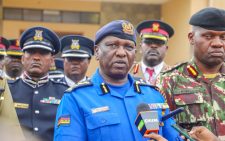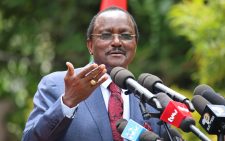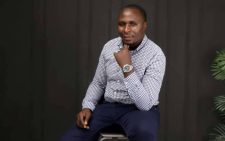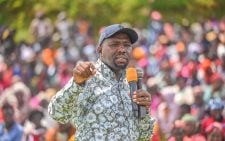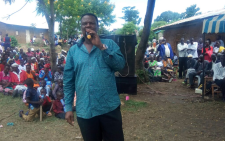Why construction engineers need more state support
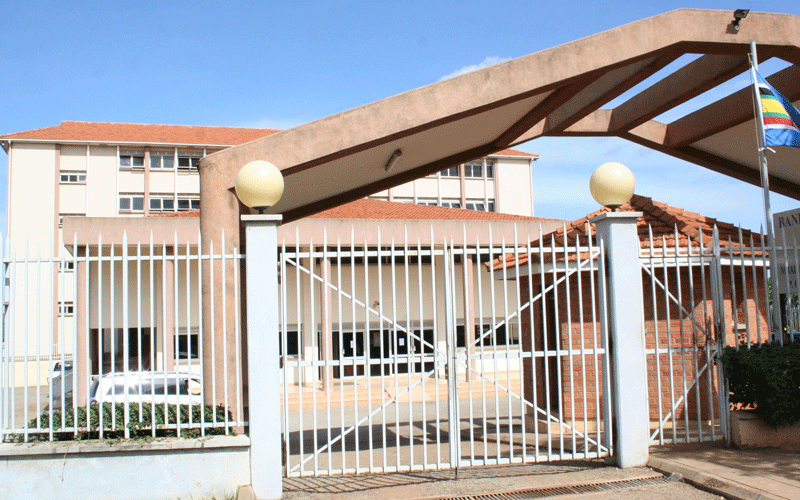
Nathaniel Matalanga is the president of the Institution of Engineers in Kenya. He is also a consulting engineer and owner of Ngasi Consulting Engineers.
Harriet James @harriet86jim
Where did your journey in engineering begin?
After I finished secondary school at Sigalagala Technical School in 1982, it was clear that I will take up construction engineering.
I went to Strathmore college for my O-levels between 1983 and 1984 and then joined the youth service before going to the University of Nairobi to pursue civil engineering from 1986 to 1989.
Since then, I have been working in the field for more than 30 years.
What are the changes have you noted in the industry for those three decades?
The design codes of practice have changed. We started with the International Building Code Section 110 and then we moved to BS 8110, a British Standard for the design and construction of reinforced and prestressed concrete structures.
Now we are talking of the the EN Eurocodes, which provides a common approach for the design of buildings and other civil engineering works and construction products.
There has been a continuous improvement and development of both design and construction.
The advent of the Chinese into the market has also resulted in some positive changes, including the ability to manage a construction process and deliver on time, because they have the financial capacity to do so.
Most of them will not rely so much on the advance payment by the client and this ensures that projects are run efficiently.
How has the entry of the Chinese in the market affected the field?
The Chinese entry into the construction industry has brought a lot of development in terms of technology and skills, however, the challenge has beeen human resource management.
For the government to bring Chinese labourers from china when we have our own local labourers is wrong.
There should be a framework where they bring ideas and transfer of technology that we don’t have, but use our people to do the job.
What other challenges do engineers face in construction?
The national government has a way of ensuring that every project has an engineer to run the infrastructure sector, but of late, we have seen attempts by parliament to legislate management of projects that require our expertise to non-engineers.
Since the sector gets a lot of funds, they selfishly desire to push legislation to get access to contracts instead of a trained person.
This is quite dangerous, because we will be putting projects in the hands of a person who lacks the technical know-how.
The Ministry of Transport, Infrastructure, Housing, Urban Development and Public Works is also lacking an engineer to advise on projects.
The ministry’s cabinet secretary and his four principal secretaries are not engineers.
We feel as members of the institution that the people will benefit a lot if some of these positions were occupied by engineers.
In circumstances where you are deployed in a project as an engineer and the head does not have the skills, you might be frustrated as your seniors might not take your advice seriously.
When you hear things like, engineering is a dead course, what goes through your mind?
I don’t think that its correct for people to say that. If things were done in the proper way, engineering is a great course since Kenya’s development is at its infant stages and we have so many projects to develop. We need to train more engineers to push the country forward.
What are some of the successes that you have attained as an organisation?
We have ensured that there is a data base of qualified engineers where the public can be referred to when they need service.
We have also been able to recommend jobs for our people and involved them in related workshops to sharpen their skills, share ideas and bring them up to speed on the latest technology in the world.
Further, we have been able to lobby and direct the government and advise them in terms of policy formulation.
What legacy do you desire to leave behind after your term as the engineers president?
As I exit my term, which will be next year, it is my dream that we put in place a system where every child who has the capability of being an engineer is assisted in getting to school and being given proper mentorship on the field to move the country forward.

